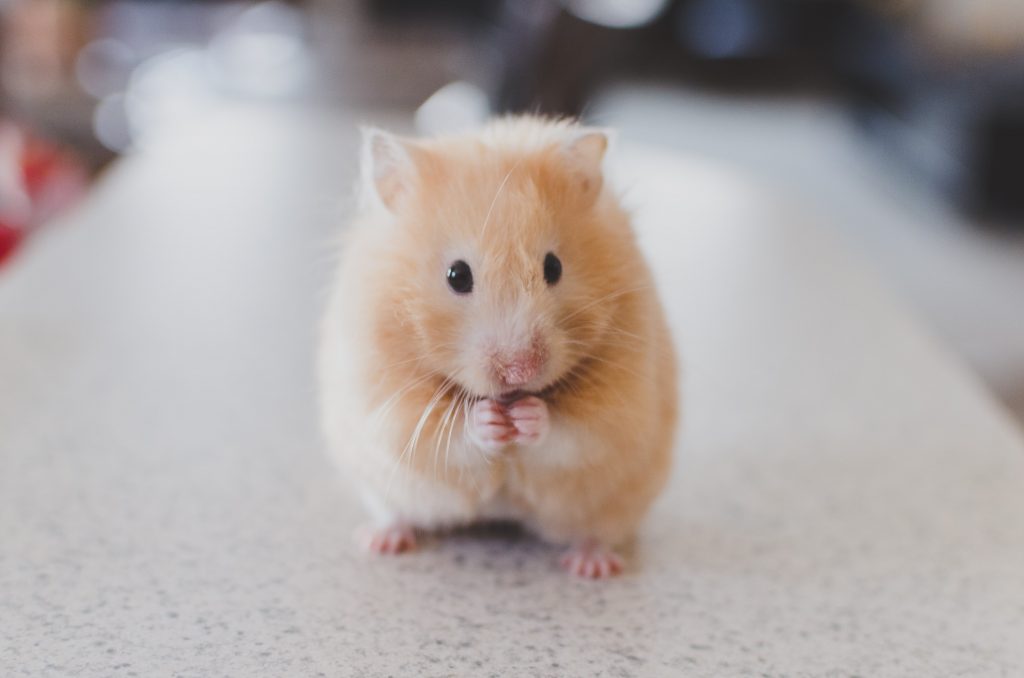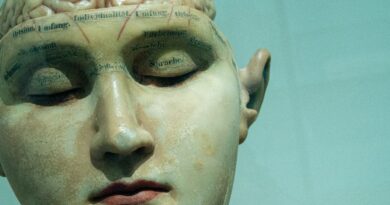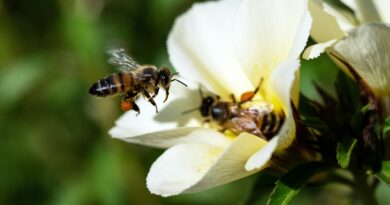Crédito da Imagem: Ricky Kharawala on Unsplash
Os animais pensam? É uma questão que tem intrigado cientistas há milhares de anos, inspirando-os a levantar diferentes métodos e critérios para medir a inteligência dos animais. Bryan B Rasmussen discorre sobre essa questão controversa, mostrando como determinar a inteligência muitas vezes diz mais sobre como os seres humanos pensam do que sobre qualquer outra coisa. Lição de Bryan B Rasmussen, animação de Mike Schell. (Fonte: Youtube.com)
| Audio | |
|---|---|
Normal | Slow |
| English Transcript | Tradução |
| Your dog loves to curl up on the couch, but so do you, so you shoo him off and settle in for a cozy evening. | Seu cão ama se enrolar no sofá, e você também, então você o espanta e se prepara para uma noite agradável. |
| After all, you're the human around here. | Afinal, você é o humano por aqui. |
| You're an intelligent being, not a simple creature of instinct. | Você é um ser inteligente, não uma simples criatura de instinto. |
| You can plan and dream, and oh- Did your dog just outsmart you and feel happy about it? | Você pode planejar, sonhar e oh - seu cão foi mais esperto que você e se sentiu feliz com isso? |
| Or was he just following his instincts? | Ou ele estava simplesmente seguindo seus instintos? |
| Is there even a difference? | Será que existe alguma diferença? |
| What is he thinking? | O que ele está pensando? |
| Well, it depends on what we mean by "thinking" and the criteria we use to evaluate it. | Bem, depende do que queremos dizer com "pensando" e do critério que utilizamos para avaliar isso. |
| Aristotle and Descartes both use the criteria of instinct and intelligence to divide animals from humans. | Aristóteles e Descartes usaram o critério do instinto e inteligência para separar os animais dos seres humanos. |
| Aristotle believed that humans possess reason, while animals could only follow brute instincts for survival and reproduction. | Aristóteles acreditava que os humanos possuem razão, enquanto animais só seguiam instintos brutos de sobrevivência e reprodução. |
| Almost 2000 years later, Descartes suggested a more extreme version of that idea, arguing that animals following instincts were indistinguishable from robots responding mechanically to stimuli in their environments. | Quase 2 mil anos mais tarde, Descartes sugeriu uma versão mais extrema dessa ideia, argumentando que os animais seguiam seus instintos e eram indistinguíveis dos robôs que respondiam mecanicamente a estímulos em seus ambientes. |
| But the consensus against animal intelligence began to unravel with Darwin's Theory of Evolution. | Mas o consenso contra a inteligência dos animais começou a ser desvendado com a Teoria da Evolução de Darwin. |
| Darwin hypothesized that intelligence could evolve from simpler instincts. | Segundo a teoria de Darwin, a inteligência poderia evoluir a partir de instintos mais simples. |
| He had observed earthworms making choices about how to drag oddly shaped leaves into their boroughs, and was struck that a human might employ similar means to solve a similar problem. | Ele observou as minhocas fazendo escolhas estranhas sobre como carregar folhas de formato estranho para dentro de seus abrigos, e ficou impressionado ao constatar que seres humanos poderiam usar meios semelhantes para resolver problemas parecidos. |
| And if, as he thought, humans are descended from simpler creatures, then perhaps our minds lie at the far end of a continuum, differing from theirs in degree, but not in kind. | E se, como ele pensava, os humanos são descendentes de criaturas mais simples, então, talvez, nossas mentes estejam na extremidade de uma sequência, diferindo deles em grau, mas não em espécie. |
| Recent experiments showing that many species can solve complex problems confirm Darwin's initial hypothesis. | Experimentos recentes mostram que muitas espécies podem resolver problemas difíceis, confirmando a hipótese inicial de Darwin. |
| Elephants use objects to reach inaccessible places. | Os elefantes usam objetos para alcançar lugares inacessíveis. |
| Crows make their own tools, and can use water displacement to get a reward. | Corvos fazem suas próprias ferramentas, e usam o deslocamento de água para obter uma recompensa. |
| Octopuses can open jars after watching others do so, and can even remember the process months later. | Os polvos podem abrir frascos depois de ver outros fazerem o mesmo, e podem até mesmo se lembrar do processo meses depois. |
| Such tasks involve considering aspects of a problem separately from the immediate situation, and retaining the strategy for later use. | Tais tarefas envolvem considerar os aspectos de um problema separadamente da situação imediata e guardar a estratégia para uso posterior. |
| Still, while animals can solve complex problems, how do we know what, or even that, they are thinking? | Mesmo assim, enquanto animais podem resolver problemas complexos, como sabemos o que e como eles estão pensando? |
| Behaviorists, such as Pavlov and Thorndike, argue that animals that appear to think are usually only responding to reward or punishment. | Behavioristas como Pavlov e Thorndike argumentam que animais que aparentam pensar geralmente respondem apenas a recompensas ou punições. |
| This was the case with Clever Hans, a horse with the amazing ability to tap out answers to math problems. | Este foi o caso de Clever Hans, um cavalo com a incrível habilidade de resolver problemas matemáticos. |
| But it turns out Hans wasn't especially good at math, but at reading his unwitting trainer's subtle nonverbal cues for when to stop tapping. | Mas Hans mostrou que ele não era especialmente bom em matemática, mas bom em ler os sinais sutis e não verbais de seu treinador, que mostrava quando deveria parar de bater com sua pata. |
| So Hans couldn't count, but does that mean he wasn't thinking? | Hans não podia contar, mas quer dizer que ele não estava pensando? |
| After all, he could interpret nuanced social messages, a quality he shared with many other non-human animals. | Afinal, ele podia interpretar nuances da linguagem corporal, uma qualidade que ele compartilhava com muitos outros animais. |
| Elephants recognize each other after years apart, and even seem to mourn their dead. | Elefantes reconhecem um ao outro após anos de separação, e parecem até mesmo chorar pelos seus mortos. |
| Bees communicate using a special waggle dance to indicate the location and quality of a food source to other bees. | Abelhas se comunicam usando uma dança especial de abanar para indicar a localização e a qualidade da fonte de alimento para as demais. |
| Chimpanzees engage in complex deception schemes, suggesting not only do they think, but they understand that others do, too. | Chimpanzés se envolvem em esquemas complexos de dissimulação, sugerindo que não apenas acham, mas entendem que os demais o fazem. |
| And then there is Alex the Grey Parrot, who could use human language to distinguish the colors and shapes of absent objects, and even understand abstract concepts, like bigger and smaller. | E tem o Alex, o papagaio cinza, que usava a linguagem humana para distinguir as cores e as formas de objetos abstratos, e até mesmo entender conceitos abstratos, como "maior" e "menor". |
| That sounds a lot like intelligence, and not just the work of mindless machines. | Isso soa muito parecido com inteligência, e não apenas como trabalho de máquinas programadas. |
| But while a non-human animal can solve problems and even communicate, for humans, thinking also involves consciousness, the ability to reflect on our actions, not simply to perform them. | Mas enquanto um animal pode resolver problemas e até mesmo se comunicar, para os humanos, pensar envolve também consciência, a capacidade de refletir sobre as ações e não simplesmente realizá-las. |
| So far, none of our studies tell us if having the intelligence to outsmart us means that our dog can also feel good about doing so. | Até agora, nenhum estudo diz se o fato de conseguir ser mais esperto que nós significa que nosso cão também possa se sentir bem por fazer isso. |
| What we really want to know is what is it like to be a dog, or an octopus, or a crow? | O que realmente queremos saber é: como é ser um cão, ou um polvo, ou um corvo? |
| Philosophers of mind call this The Hard Problem, because while you and I can report what it feels like to be a human, nobody speaks horse. | Os filósofos da mente chamam isto de O Problema Difícil, porque embora você e eu possamos relatar como é ser um humano, ninguém conversa com cavalos. |
| Even a talking parrot, like Alex, couldn't tell us how he feels about the colors he could name. | Nem mesmo um papagaio falante, como Alex, poderia nos dizer como se sente sobre as cores que ele consegue nomear. |
| And what if consciousness comes in different forms? | E se a consciência existir em diferentes formas? |
| Would we even recognize the consciousness of bees? | Reconheceríamos a consciência das abelhas? |
| For that matter, how can we know for sure that other people have consciouness? | Aliás, como podemos saber com certeza que as outras pessoas têm consciência? |
| Perhaps they're just well-functioning zombies. | Talvez elas sejam apenas zumbis bem programados. |
| Regardless, animal minds continue to test the limits of our understanding and how we frame them may reveal more about our minds than theirs. | Seja como for, a mente dos animais segue testando os limites da nossa compreensão e a forma como os rotulamos pode revelar mais sobre nossas mentes do que a deles. |
| Tradução: Gisele Oliveira Revisor: Luciano Vilas Boas | |
Contagem de Palavras
A tabela abaixo exibe as palavras encontradas neste vídeo bem como o número de vezes em que aparecem.
| Freq. | Palavra | Freq. | Palavra | Freq. | Palavra |
|---|---|---|---|---|---|
| 25 | to | 25 | and | 21 | the |
| 19 | a | 15 | that | 13 | of |
| 10 | can | 9 | he | 8 | even |
| 8 | but | 7 | what | 7 | we |
| 7 | for | 6 | use | 6 | so |
| 6 | our | 6 | it | 6 | in |
| 6 | human | 6 | from | 6 | animals |
| 5 | you | 5 | thinking | 5 | or |
| 5 | not | 5 | like | 5 | is |
| 5 | intelligence | 5 | how | 5 | do |
| 5 | could | 5 | about | 4 | with |
| 4 | while | 4 | their | 4 | solve |
| 4 | problems | 4 | other | 4 | just |
| 4 | instincts | 4 | humans | 4 | dog |
| 4 | after | 3 | was | 3 | us |
| 3 | they | 3 | problem | 3 | only |
| 3 | on | 3 | minds | 3 | later |
| 3 | know | 3 | if | 3 | hans |
| 3 | consciousness | 3 | complex | 3 | bees |
| 3 | at | 3 | are | 3 | animal |
| 2 | you're | 2 | your | 2 | years |
| 2 | well | 2 | wasn't | 2 | understand |
| 2 | this | 2 | think | 2 | there |
| 2 | then | 2 | them | 2 | theirs |
| 2 | tell | 2 | such | 2 | simpler |
| 2 | similar | 2 | reward | 2 | responding |
| 2 | recognize | 2 | quality | 2 | perhaps |
| 2 | parrot | 2 | outsmart | 2 | out |
| 2 | others | 2 | objects | 2 | non |
| 2 | more | 2 | means | 2 | mean |
| 2 | math | 2 | many | 2 | instinct |
| 2 | horse | 2 | his | 2 | good |
| 2 | following | 2 | feels | 2 | feel |
| 2 | far | 2 | elephants | 2 | descartes |
| 2 | darwin's | 2 | criteria | 2 | couldn't |
| 2 | communicate | 2 | colors | 2 | be |
| 2 | as | 2 | aristotle | 2 | an |
| 2 | also | 2 | all | 2 | alex |
| 2 | ability | 1 | zombies | 1 | would |
| 1 | work | 1 | who | 1 | when |
| 1 | were | 1 | water | 1 | watching |
| 1 | want | 1 | waggle | 1 | version |
| 1 | usually | 1 | using | 1 | up |
| 1 | unwitting | 1 | unravel | 1 | understanding |
| 1 | turns | 1 | trainer's | 1 | tools |
| 1 | too | 1 | thought | 1 | thorndike |
| 1 | they're | 1 | theory | 1 | than |
| 1 | test | 1 | tasks | 1 | tapping |
| 1 | tap | 1 | talking | 1 | survival |
| 1 | sure | 1 | suggesting | 1 | suggested |
| 1 | subtle | 1 | studies | 1 | struck |
| 1 | strategy | 1 | stop | 1 | stimuli |
| 1 | still | 1 | species | 1 | special |
| 1 | speaks | 1 | source | 1 | sounds |
| 1 | social | 1 | smaller | 1 | situation |
| 1 | simply | 1 | simple | 1 | showing |
| 1 | shoo | 1 | shared | 1 | shapes |
| 1 | shaped | 1 | settle | 1 | separately |
| 1 | seem | 1 | schemes | 1 | robots |
| 1 | reveal | 1 | retaining | 1 | reproduction |
| 1 | report | 1 | remember | 1 | regardless |
| 1 | reflect | 1 | recent | 1 | reason |
| 1 | really | 1 | reading | 1 | reach |
| 1 | punishment | 1 | process | 1 | possess |
| 1 | plan | 1 | places | 1 | philosophers |
| 1 | perform | 1 | people | 1 | pavlov |
| 1 | own | 1 | open | 1 | oh |
| 1 | off | 1 | oddly | 1 | octopuses |
| 1 | octopus | 1 | observed | 1 | nuanced |
| 1 | nonverbal | 1 | none | 1 | nobody |
| 1 | name | 1 | mourn | 1 | months |
| 1 | mindless | 1 | mind | 1 | might |
| 1 | messages | 1 | mechanically | 1 | may |
| 1 | matter | 1 | making | 1 | make |
| 1 | machines | 1 | loves | 1 | lot |
| 1 | location | 1 | limits | 1 | lie |
| 1 | leaves | 1 | language | 1 | kind |
| 1 | jars | 1 | involves | 1 | involve |
| 1 | into | 1 | interpret | 1 | intelligent |
| 1 | initial | 1 | indistinguishable | 1 | indicate |
| 1 | inaccessible | 1 | immediate | 1 | idea |
| 1 | I | 1 | hypothesized | 1 | hypothesis |
| 1 | him | 1 | here | 1 | having |
| 1 | have | 1 | hard | 1 | happy |
| 1 | had | 1 | grey | 1 | get |
| 1 | functioning | 1 | frame | 1 | forms |
| 1 | food | 1 | follow | 1 | extreme |
| 1 | experiments | 1 | evolve | 1 | evolution |
| 1 | evening | 1 | evaluate | 1 | especially |
| 1 | environments | 1 | engage | 1 | end |
| 1 | employ | 1 | earthworms | 1 | each |
| 1 | dream | 1 | drag | 1 | doing |
| 1 | does | 1 | divide | 1 | distinguish |
| 1 | displacement | 1 | differing | 1 | different |
| 1 | difference | 1 | did | 1 | descended |
| 1 | depends | 1 | degree | 1 | deception |
| 1 | dead | 1 | darwin | 1 | dance |
| 1 | curl | 1 | cues | 1 | crows |
| 1 | crow | 1 | creatures | 1 | creature |
| 1 | cozy | 1 | count | 1 | couch |
| 1 | continuum | 1 | continue | 1 | considering |
| 1 | consensus | 1 | consciouness | 1 | confirm |
| 1 | concepts | 1 | comes | 1 | clever |
| 1 | choices | 1 | chimpanzees | 1 | case |
| 1 | call | 1 | by | 1 | brute |
| 1 | both | 1 | boroughs | 1 | bigger |
| 1 | believed | 1 | being | 1 | behaviorists |
| 1 | began | 1 | because | 1 | aspects |
| 1 | around | 1 | arguing | 1 | argue |
| 1 | appear | 1 | apart | 1 | answers |
| 1 | amazing | 1 | almost | 1 | against |
| 1 | actions | 1 | abstract | 1 | absent |









